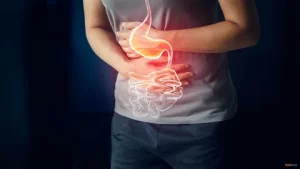Introduction Stress is an inevitable part of life. Whether it’s due to work pressures, relationship strains, financial worries, or other external factors, stress can manifest itself in various ways, including physical symptoms such as stomach pain. In today’s fast-paced world, where stressors seem to abound, it’s essential to recognize the intricate connection between stress and
Introduction
Stress is an inevitable part of life. Whether it’s due to work pressures, relationship strains, financial worries, or other external factors, stress can manifest itself in various ways, including physical symptoms such as stomach pain. In today’s fast-paced world, where stressors seem to abound, it’s essential to recognize the intricate connection between stress and stomach issues and take proactive steps to address them effectively.
The Impact of Stress on Digestive Health
Stress and the Gut-Brain Axis
The gut-brain axis is a complex bidirectional communication network between the central nervous system (CNS) and the gastrointestinal (GI) system. When you experience stress, whether it’s acute or chronic, it can disrupt this delicate balance, leading to significant changes in gut motility, secretion, and sensitivity. These alterations can result in a wide array of digestive symptoms, including abdominal pain, bloating, diarrhea, or constipation.
Role of Cortisol in Digestive Function
Cortisol, often referred to as the body’s primary stress hormone, plays a pivotal role in the body’s response to stress. During periods of heightened stress, cortisol levels rise, triggering a cascade of physiological responses. In terms of digestive function, cortisol can have several effects, including increased gastric acid secretion, alterations in intestinal permeability, and changes in the composition of gut microbiota. These effects can collectively contribute to digestive discomfort, inflammation, and other gastrointestinal symptoms commonly associated with stress.

Image by: yendex.com
Recognizing the Signs: Symptoms of Stress-Related Stomach Issues
Common Symptoms
Stress-related stomach issues can manifest in a variety of ways, with symptoms ranging from mild discomfort to debilitating pain. Some of the most common symptoms include:
- Abdominal Pain: Individuals experiencing stress-related stomach issues often report a dull, achy sensation in the abdomen. This pain may be localized to a specific area or felt more diffusely throughout the abdomen.
- Bloating: Excess gas production and alterations in gut motility can lead to bloating, causing the abdomen to feel distended and uncomfortable.
- Changes in Bowel Habits: Stress can disrupt normal bowel function, resulting in changes such as diarrhea, constipation, or alternating patterns of both.
- Nausea: Feelings of nausea or queasiness are common manifestations of stress-related stomach issues and may be accompanied by a loss of appetite.
- Heartburn: Increased gastric acid secretion due to stress can lead to heartburn or acid reflux, characterized by a burning sensation in the chest and throat.
When to Seek Medical Attention
While occasional stomach discomfort is normal, persistent or severe symptoms warrant medical evaluation. Individuals experiencing any of the following red flags should seek prompt medical attention:
- Persistent abdominal pain that worsens over time
- Presence of blood in the stool or black, tarry stools
- Unexplained weight loss
- Difficulty swallowing or persistent vomiting
- Signs of dehydration, such as dark urine or dizziness
Prompt diagnosis and treatment are essential for identifying the underlying cause of symptoms and preventing potential complications.

Image by: medical dialogues.in
Coping Strategies: Managing Stress for Better Digestive Health
Stress Management Techniques
Effectively managing stress is crucial for maintaining optimal digestive health. Incorporating stress management techniques into your daily routine can help alleviate symptoms and improve overall well-being. Consider the following strategies:
- Deep Breathing: Practice deep breathing exercises to promote relaxation and reduce stress levels. Deep breathing techniques, such as diaphragmatic breathing or guided imagery, can help calm the mind and body.
- Regular Exercise: Engage in regular physical activity to release endorphins and alleviate stress. Activities such as walking, jogging, yoga, or swimming can help reduce tension and improve mood.
- Mindfulness Meditation: Incorporate mindfulness meditation into your daily routine to cultivate present-moment awareness and reduce anxiety. Mindfulness practices, such as mindfulness-based stress reduction (MBSR) or mindful eating, can help manage stress and promote digestive health.
- Healthy Lifestyle Choices: Prioritize healthy lifestyle habits, including a balanced diet, adequate sleep, and time for relaxation. Avoid excessive caffeine, alcohol, and tobacco, as these substances can exacerbate stress and digestive symptoms.
- Seeking Support: Don’t hesitate to reach out to friends, family, or a mental health professional for support during challenging times. Talking to a trusted confidant or seeking professional counseling can provide valuable insight and perspective on managing stress effectively. Explore more About (Fish And Cancer Risk)
Dietary Modifications
In addition to stress management techniques, certain dietary modifications may help alleviate stress-related stomach issues and promote digestive health. Consider the following dietary tips:
- Fiber-Rich Foods: Incorporate fiber-rich foods, such as fruits, vegetables, whole grains, and legumes, into your diet to support healthy digestion. Fiber helps regulate bowel function and promote the growth of beneficial gut bacteria.
- Probiotics: Consume foods rich in probiotics, such as yogurt, kefir, sauerkraut, and kimchi, to maintain a healthy balance of gut microbiota. Probiotics can help improve digestion, strengthen the immune system, and reduce inflammation.
- Hydration: Drink plenty of water throughout the day to stay hydrated and support optimal digestion. Adequate hydration is essential for maintaining healthy bowel function and preventing constipation.
- Limit Trigger Foods: Identify and limit foods that may exacerbate digestive symptoms, such as spicy foods, caffeine, alcohol, and fatty or fried foods. Keeping a food diary can help pinpoint potential triggers and make dietary modifications accordingly.

Image By: medmunch.com
| Aspect | Stress-Related Stomach Issues | Irritable Bowel Syndrome (IBS) | Gastroesophageal Reflux Disease (GERD) |
|---|---|---|---|
| Primary Cause | Psychological stress | Unknown | Weakness in the lower esophageal sphincter |
| Symptoms | Abdominal pain, bloating, changes in bowel habits, nausea, heartburn | Abdominal pain, bloating, changes in bowel habits, diarrhea or constipation | Heartburn, regurgitation, chest pain |
| Triggers | Stressful events, anxiety, tension | Certain foods, hormonal fluctuations, stress | Spicy foods, acidic foods, caffeine, alcohol |
| Diagnosis | Based on symptoms and medical history | Based on Rome criteria and exclusion of other conditions | Based on symptoms, endoscopy, pH monitoring |
| Treatment | Stress management, dietary modifications, lifestyle changes | Dietary modifications, stress management, medications | Dietary modifications, medications, surgery |
| Prognosis | Symptoms often improve with stress management techniques | Chronic condition with periods of remission and exacerbation | Chronic condition that may require long-term management |
Conclusion
In conclusion, stress-related stomach issues are a common concern for many individuals, but they can be effectively managed with the right approach. By understanding the connection between stress and digestive health, recognizing the signs and symptoms, and implementing proactive coping strategies, you can take control of your health and well-being. Remember to listen to your body, prioritize self-care, and seek medical attention if needed. With a holistic approach that addresses both stress management and dietary modifications, you can enjoy improved digestive health and overall quality of life.
















